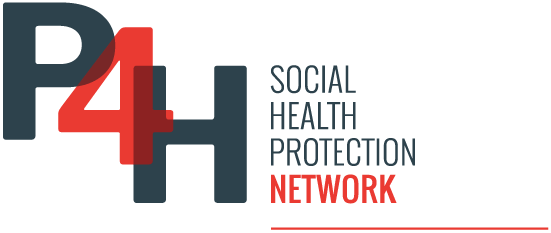The number of documents available on the P4H Network’s digital platform reflects the network’s scope of work. The majority of documents are primary source materials created by country nationals or resources produced by organizations working in social health protection (SHP) and/or health financing (HF).
Health insurance type, healthcare utilization and out-of-pocket expenditure in the face of COVID-19: Evidence from Thai national survey data
This study investigates whether the type of public health insurance affects outpatient healthcare utilization and out-of-pocket expenditure in Thailand before and during the COVID-19 pandemic. The findings suggest that health insurance type primarily affects provider...
The rising income gradient in life expectancy in Sweden over six decades
This study investigates the relationship between income and life expectancy in Sweden from 1960 to 2021, revealing a widening gap in life expectancy between different income levels. The disparity increased significantly, with men’s life expectancy gap growing from 3.5...
Analysing global immunisation expenditure
The Office of Health Economics (OHE) published the research paper "Analysing Global Immunisation Expenditure" on April 15, 2025. This comprehensive study examines immunisation spending trends from 2016 to 2022 across ten countries: Australia, Brazil, Canada, France,...
Consumer choice and control within a highly regulated, market-based system in Australia
Australia’s long-term care system operates within a tightly regulated, market-based framework that emphasises consumer choice and control. In this country report, published by the WHO Centre for Health Development, authors Sarah Wise, Michael Woods, and Kees van Gool...
Taking stock of development assistance for health (DAH) in the 21st Century: Renewing our commitment
Over the past three decades, the world has made significant progress in improving population health, particularly in low- and lower-middle-income countries. Reductions in infant mortality and the disease burden among young children reflect both socioeconomic...
Government purchase of private health services in the Eastern Mediterranean region: opportunities and challenges for stewarding towards a universal health coverage focus
As countries across the Eastern Mediterranean region (EMR) increasingly rely on private providers to deliver health services, governments face growing pressure to ensure these purchasing arrangements align with Universal Health Coverage (UHC) goals. This article,...
A retrospective study of insurance coverage status and economic cost of rare diseases in Hainan Province
Rare diseases in Hainan Province pose a significant economic burden, with a rising prevalence and limited data available. A study from 2019 to 2023 found that 83.01% of the 4,975 diagnosed patients were insured, yet total economic costs escalated from 34.26 million...
Purchasing health care from the private sector: a primer for middle-income countries in the WHO European Region
In response to growing interest among middle-income countries in the WHO European Region to engage private health-care providers (PHPs) within publicly funded health systems, the WHO Barcelona Office for Health Systems Financing has developed this primer to support...
Financing essential medicines and health supplies in Pakistan
ThinkWell Pakistan has recently published a series of insightful fact sheets exploring how public health facilities in Pakistan procure and finance essential medicines and health supplies (EMHS), along with the bottlenecks they face at each step of the process....
Ministry of Public Health of Uruguay, Decree n. 287/2012.
In 2012, Uruguay's Ministry of Health issued a decree updating the categories of free care administered by the National Health Fund (FONSA). Certain vulnerable groups and beneficiaries affiliated by quota to the state health services administration (ASSE) can receive...
Financing intersectoral action for health: a systematic review of co-financing models
The research article by Finn McGuire, Lavanya Vijayasingham, Anna Vassall, Roy Small, Douglas Webb, Teresa Guthrie, and Michelle Remme published in the Journal of Globalization and Health explores how shared financing mechanisms can support collaborative efforts...
Overcoming coordination challenges between health and social services in the Republic of Korea
This policy brief, published by the WHO Centre for Health Development, explores the Republic of Korea’s long-term care (LTC) insurance system and the coordination challenges it faces between health and social services. Authored by Professor Soonman Kwon of Seoul...
Sustainable and gender equitable capacity building for health financing in Africa
Across nine African countries, a Clinton Health Access Initiative (CHAI) assessment reveals critical gaps in the health financing workforce. These challenges stem from systemic issues in training and institutional structures. As global funding shifts and domestic...
Protecting global health partnerships in the era of destructive nationalism
In an opinion piece published by PLOS Global Public Health, Adam et al. (2025) examine the growing threat that rising nationalism poses to global health partnerships. The authors—Maya Adam, Desiree LaBeaud, Nokwanele Mbewu, and colleagues—highlight how shifts in the...
The global landscape of country-level health technology assessment processes
The global landscape of Health Technology Assessment (HTA) processes is evolving as countries strive to implement evidence-based decision-making for healthcare services. This survey, covering 104 countries, offers an insightful analysis of the current state of HTA...
